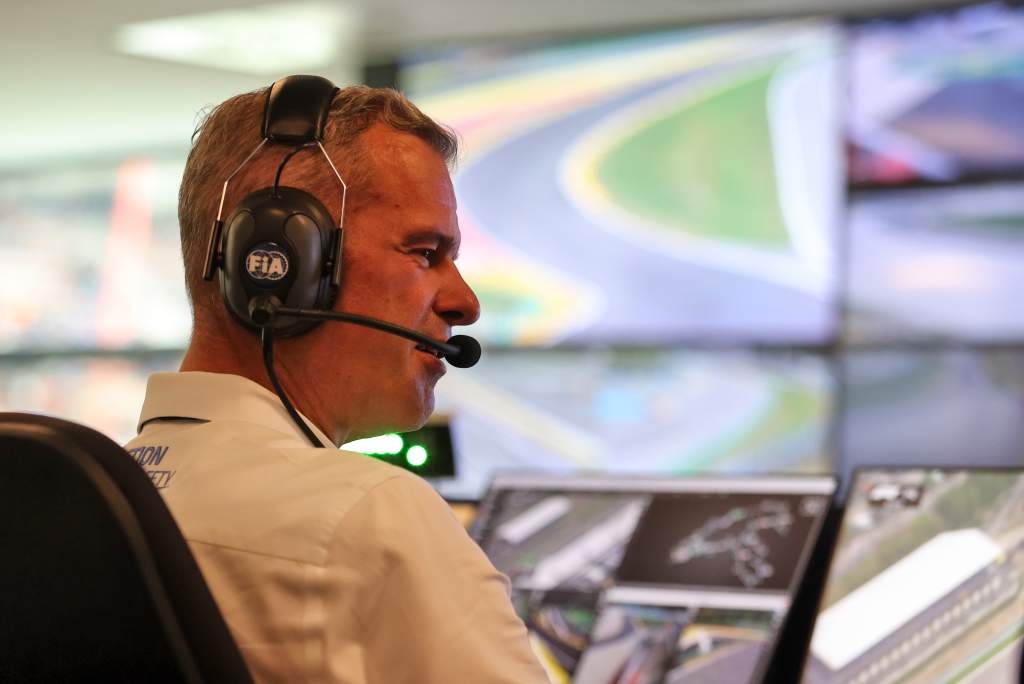
Audience
- Sentiment: Positive
- Political Group: Progressive
- Age Group: 18-35
- Gender: Any
Overview
- Rui Marques is appointed as the permanent race director for Formula 1, enhancing safety and fairness.
- Claire Dubbelman’s promotion as deputy race director symbolizes progress toward gender equality in motorsports.
- The FIA is investing in a High Performance Programme to train the next generation of race directors, ensuring a sustainable future for Formula 1.
FIA Solidifies Leadership Structure for Formula 1: What This Means for the Future of Racing
Formula 1, the premier motorsport series in the world, is always buzzing with excitement. Its environment is not just about high-speed cars zipping around a track; it’s also about the people behind the scenes who ensure everything runs smoothly. Imagine being the referee in a super intense soccer game, where every second counts and decisions can affect the outcome. In Formula 1, that’s what a race director does! Recently, there has been some important news regarding the leadership positions in Formula 1, and it’s something that fans, like you and me, need to understand because it affects how races are run.
New Leadership in the FIA
The FIA (Fédération Internationale de l’Automobile), which is the governing body for motorsport globally, has recently made significant changes to its leadership structure for Formula 1. Starting in 2025, Rui Marques will take on the role of the permanent race director. This news is exciting because having a stable and experienced race director can make a big difference in the safety and fairness of races. Rui stepped into this role late last season, showing that he has what it takes to handle the pressure of directing these high-stakes events.
You might be wondering, who is Rui Marques? Well, he’s not new to the motorsport scene. His background includes working with various racing events, which means he comes with a lot of experience. When the stakes are high, and every decision can impact the race outcome, having someone who understands the intricacies of racing is crucial.
Meet Claire Dubbelman
But it doesn’t stop there! The FIA has appointed Claire Dubbelman as the new deputy race director. Think of her as the assistant principal in a school. She supports Rui in his role and helps ensure everything goes smoothly. Claire has a wealth of experience in overseeing numerous racing series under the FIA umbrella. This ‘teamwork’ approach means that they can share ideas and strategies to improve how races are managed.
The fact that the FIA is appointing women to significant roles in motorsport is also encouraging. For many years, motorsports have been seen as male-dominated territories. Claire’s appointment highlights a positive shift toward gender equality within this exciting but often overshadowed industry. This is a trend we should all cheer for, as diversity contributes to better decision-making and a broader perspective on issues at hand.
Enhancing Race Control and Framework
With Rui and Claire in place, the FIA is also making strides to enhance the race control framework. This means they are not only relying on these two individuals but are expanding the team of senior officials and technical support to ensure that races are managed with the utmost professionalism and efficiency.
Imagine a courtroom where multiple judges are working together to make sure that justice is served. Having a strong team of officials can help in making faster and fairer decisions during races. This is vital because in a sport where everything hinges on split-second decisions—like whether to activate a safety car or how to handle a collision—being well-organized can lead to smoother races.
The High Performance Programme (HPP)
One of the most innovative initiatives launched by the FIA is the High Performance Programme (HPP). This program is designed to cultivate a new generation of skilled race directors and stewards. It’s like a training camp for the next wave of talent. Just as athletes require training to reach their peak performance, race directors need education and practice to hone their skills effectively.
FIA President Mohammed Ben Sulayem has expressed strong support for nurturing fresh talent in motorsport. This statement reflects not just a concern for the present but a vision for the future. By investing in young talents and preparing them to take the reins of race directing, the FIA is ensuring that Formula 1 has a sustainable future where experience and innovation go hand in hand.
The Importance of Nurturing Talent
Now, what does all this mean for racing fans? As the sport evolves, it likely means an increase in safety protocols, better decision-making during events, and maybe even more exciting racing. Teams and drivers often push their limits, and sometimes things can go awry on the track. With an experienced race control team, we can expect improved handling of on-track incidents and a clearer communication channel between teams and race officials.
Moreover, by fostering new talent, we might see perspectives and approaches that differ from the past, leading to fresh ideas and strategies that can spice up the racing experience. This new viewpoint can also create a more dynamic environment that fans will love, keeping them on the edge of their seats long after the flag is waved.
A New Era for Formula 1
So as we gear up for the 2025 season and beyond, we can look forward to watching how these leaders bring their vision to life. The changes in leadership within the FIA could signal the dawn of a new era in Formula 1, emphasizing transparency, fairness, and excitement in every race.
And let’s not forget the fans—the lifeblood of the sport. With effective leadership in place, we can expect to see better-catered events, more engaging fan experiences, and a community that thrives around the exhilarating world of motorsport.
Final Thoughts
As we ponder this guidance and support for the future of Formula 1, let’s think about our experiences as fans: whether it’s the thrill of live races, the joy of watching from home with friends, or the heated discussions over who should’ve won a particular race. The decisions made behind the scenes are just as crucial as the races themselves.
Do you think these changes to FIA leadership will bring improvements to Formula 1, or do you believe there are other areas that need attention? I’d love to hear your thoughts! Share your opinions in the comments below—let’s discuss what you believe makes a race director great or how you think we can see more diversity in motorsport!




